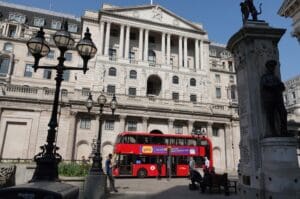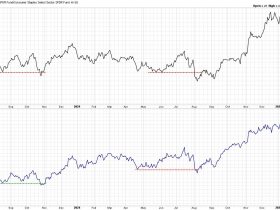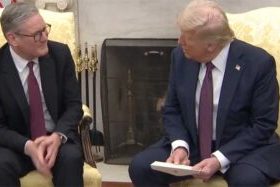UK inflation fell more sharply than expected in March, reaching its lowest level in five months as falling petrol prices and flat food costs helped to ease the pressure on consumers and policymakers.
Figures published by the Office for National Statistics (ONS) show that the annual rate of inflation fell to 2.6%, down from 2.8% in February, and well below forecasts by economists and the Bank of England. It marks the slowest pace of price growth since October 2024, offering a glimmer of relief for households still grappling with the cost-of-living crisis.
Grant Fitzner, chief economist at the ONS, said: “Inflation eased again in March, driven by a variety of factors including falling fuel prices and unchanged food costs compared with the price rises we saw this time last year. The only significant offset came from clothing, which rose strongly following an unusual decrease in February.”
Services inflation, closely monitored by the Bank of England as a measure of domestic price pressures, fell to 4.7% from 5%, coming in below the Bank’s forecast of 4.9%. Core inflation, which excludes volatile food and energy prices, edged down slightly to 3.4% from 3.5%.
The drop in inflation was helped by slower price rises in categories such as games and toys, while food inflation eased to 3%, from 3.3% in February. The retail price index (RPI), an older measure still used in some contracts, also fell to 3.2% from 3.4%.
Despite the improvement, inflation remains above the Bank of England’s 2% target, and economists warn it could climb again in the summer due to rising household energy bills. However, the latest figures strengthen the case for further interest rate cuts.
Markets are now pricing in four Bank of England rate cuts this year, up from three, with the next policy meeting due on 8 May. The Bank had already cut rates by 25 basis points in February, taking the base rate to 4.5%.
Chancellor Rachel Reeves welcomed the latest figures but warned that challenges remained.
“Families are still struggling with the cost of living, and those anxieties are being compounded by the volatility in global markets driven by President Trump’s tariffs,” she said. “But with inflation falling for two months in a row, wages growing faster than prices and positive growth figures, there are clear signs our economy is turning a corner.”
Trump’s protectionist measures have introduced uncertainty into global trade flows, with tariffs already in place and more potentially on the horizon. Britain currently faces a 10% baseline tariff on goods exported to the US, while China and the EU are subject to even steeper rates. The Office for Budget Responsibility (OBR) has warned that a full-blown trade war could hit UK GDP and put further downward pressure on inflation.
Yael Selfin, chief economist at KPMG UK, said: “The tariffs imposed on the UK and its main trading partners could see goods prices ease further in the coming months. Trade diversion may lead to discounted exports from European and Asian markets being redirected to the UK.”
Ruth Gregory, deputy chief UK economist at Capital Economics, echoed this view:“The weak economy will quash inflation eventually. The tariff shock has tilted the balance of risks towards lower inflation and faster falls in interest rates.”
Tomasz Wieladek, chief European economist at T Rowe Price, added: “Trump’s tariffs are deflationary for Europe—especially for the UK, where the government has opted not to retaliate.”
Financial markets reacted positively to the data. The pound rose by 0.4% against the dollar to just below $1.33, extending its gains to over 6% for the year. However, equities slipped, with the FTSE 100 down 0.50% and the FTSE 250 off 0.48%.
Bond markets also reflected the improving inflation outlook, with the yield on the UK’s 10-year government bond falling five basis points to 4.581%. Yields on 30-year gilts have also begun to retreat after hitting 1998 highs earlier this month.
While the inflation outlook appears to be softening, analysts caution that global uncertainty and domestic cost pressures will continue to shape the UK’s economic trajectory throughout the year.
Read more:
UK inflation falls to 2.6% in March as fuel costs drop, easing pressure on Bank of England












